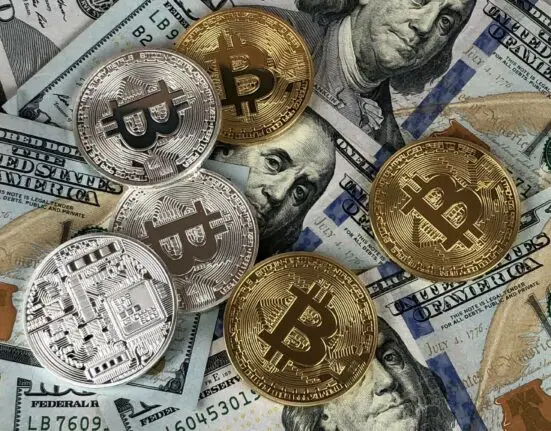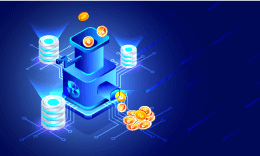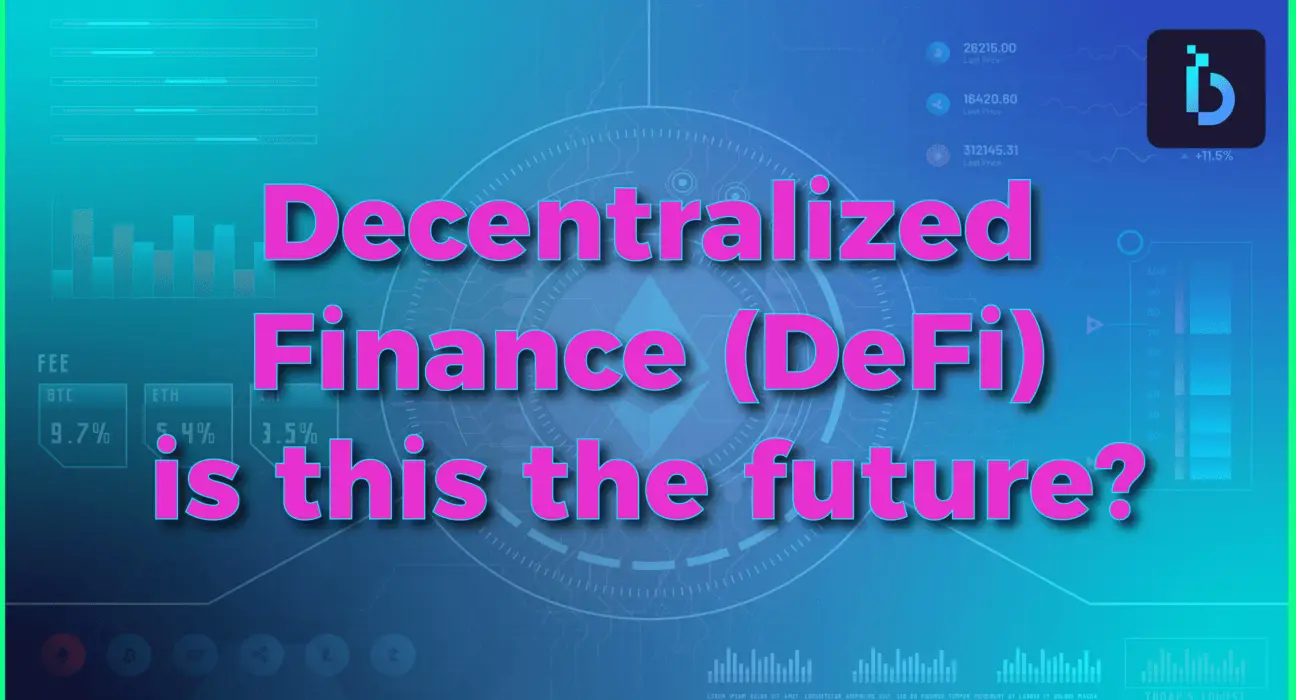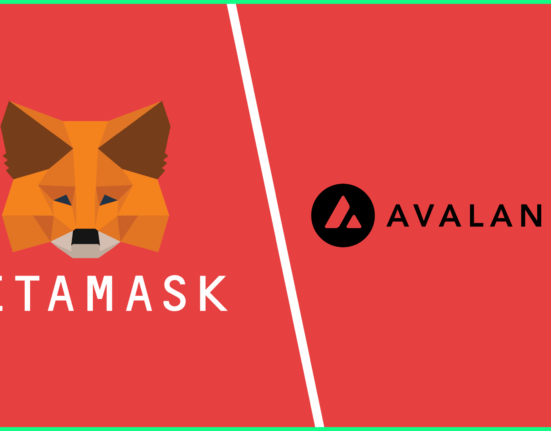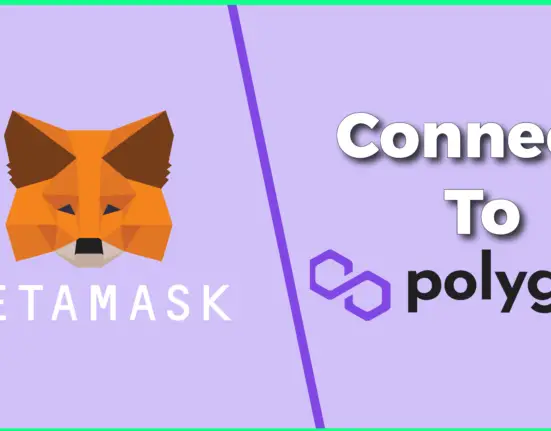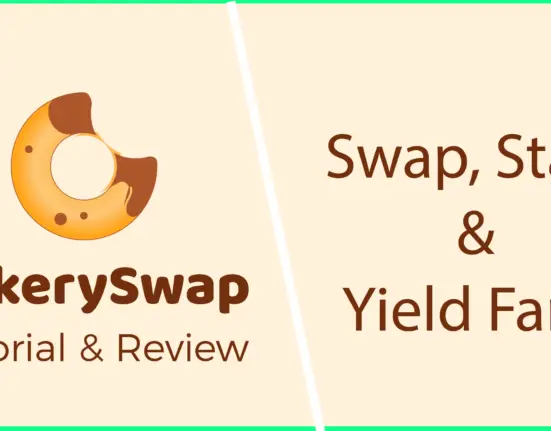Decentralized Finance is a new form of financial market where Decentralized Applications (DApps) are used to handle the trading, settlement and issuance of assets. Decentralization provides many benefits including better security, increased transparency and reduced costs. Decentralized finance has been around for some time now with notable projects being Ethereum based – Augur, Gnosis, MakerDAO etc. This article will explore what decentralized finance is and why it may be the future of finance!
Every time the word Decentralized Finance (DeFi) is mentioned, people might think of cryptocurrencies like Bitcoin and Ethereum. While this is technically true – DeFi assets are entirely built on blockchain technology, they don’t necessarily have to be tied directly to a cryptocurrency or token. For example; MakerDAO uses Ether as their native token, but their stablecoin Dai is a DeFi asset. Decentralized finance allows for the creation of assets that might not exist without blockchain technology and therefore could be considered to be one of its biggest benefits – more on this later!
Decentralizing an existing process (like financial markets) can provide many advantages including increased security, transparency and trust. Decentralization can also solve some of the biggest problems that we face today such as high costs, lack of access to financial markets and difficulty in transferring assets or receiving payments. Decentralized finance is growing at a rapid pace with many projects aiming to provide decentralized financing for anyone within reach (even without a bank account) and at a low cost.
Decentralization makes it possible to build financial products that otherwise would not exist without blockchain technology such as decentralized credit scoring systems which could help the underbanked access financing options more easily (similarly how Uber and Airbnb have disrupted transportation and accommodation!). Decentralization also allows for the creation of assets that are tied to any real-world asset which has previously been impossible. For example – imagine being able to own a tokenized version of gold or stocks in Apple! This would be completely unprecedented without blockchain technology because it is not possible with current financial systems or infrastructures. Decentralized finance is definitely the future of finance and it may even be the future for decentralized organizations (similar to Decentraland)!
Why Decentralize? DeFi has many benefits including lower costs, security, transparency and access.
Lower Costs
Decentralization has the potential to significantly reduce costs for participants in a network. Decentralized finance can also provide access to financial markets globally without having any physical presence – this is already happening with companies like Salt Lending and SALT who are providing loans backed by the cryptocurrency as collateral (i.e. Ethereum). Decentralization has much lower fees than centralization and without intermediaries and it may be possible to one day connect ‘peer-to-peer’ users globally with the Decentralized Web – ie: Decentraland.
Security
Decentralization creates a system where every participant has an equal opportunity, this is because stakeholders are not beholden to any third party or centralized authority. Decentralized finance also creates a system where participants can transact with each other and keep their transactions private and secure without the need for intermediaries or central authorities.
Transparency
Decentralization provides transparency because all of the information involved in any transaction is stored on an immutable ledger – meaning that there are no secrets within these systems that might have been possible with traditional financial institutions. Decentralization also provides trust because it is a system of consensus – participants can decide to use any Decentralized Finance platform by joining or leaving that network and this means that the community decides which platforms are worth using (i.e: we could one day stop using companies like Bitconnect if enough people decide that they are too risky). Decentralization is also trustless because there is no third party involved in any transaction. This means that transactions can happen instantly, reducing the time it takes for money to move around or be exchanged (similarly how Uber allows you to hire a driver without having to go through an intermediary like a taxi company).
Access
Decentralization also allows Decentralized Finance platforms to be accessible globally because users do not need a bank account or any specific access – Decentraland is one example of this. Decentralization keeps Decentralized Finance safe by reducing the risk of censorship or confiscation (similarly how Decentraland keeps land ownership secure).
Decentralization also provides Decentralized Finance systems with the same level of trust as central authorities by providing transparency. Decentralization can also reduce barriers to entry because blockchain technology reduces transaction costs and ensures that any user has access to Decentralized applications or services through on-chain payment methods (similarly how Ethereum makes it possible to build Decentralized applications which require a cryptocurrency to make transactions). Decentralization also provides Decentralized Finance systems with the ability to reach a new demographic of users who might have been excluded from traditional financial institutions.
Decentralization means that Decentralized Finance platforms are not owned by any single entity, but rather they can be used or accessed by anyone in that particular network – this creates some problems because it is difficult for companies to build products on top of decentralized networks without centralized authorities dictating how these technologies get used (similarly how Decentraland cannot make changes to their platform). Decentralization also reduces overhead costs which makes DeFi more affordable and accessible – however, decentralizing everything may lead to reduced security due to collective responsibility vulnerabilities. Decentralization can also lead to Decentralized Finance platforms becoming more representative of their users and less biased towards marginalized groups.
Decentralization allows Decentralized Finance systems to be censorship-resistant, however, Decentralization makes it difficult for Decentralized Financial institutions or companies to own and manage these networks – this is because there are no central authorities who could help resolve any problems within the network (similarly how Ethereum has helped facilitate decentralized applications which allow anyone in the world to build products on top of them). Decentralization does not mean that DeFi will always be safe from attacks or other vulnerabilities such as DDOS assaults, but rather decentralizing security means that attackers would need a larger percentage of computing power to attack Decentralized networks. Decentralization helps Decentralized Finance systems become more efficient by reducing costs and cutting out middlemen, however, Decentralization also means that Decentralized Financial institutions cannot control how DeFi protocols are used. Decentralization also helps Decentralized Finance systems become more reliable because they have no single point of failure and can never be shut down (similarly how anyone with a domain name registered through NameCheap has the ability to build a website). Decentralization can also help Decentralized Financial institutions grow because Decentralization helps them become more accessible to new users.
Conclusion
Decentralized Finance (DeFi) is a relatively new term that refers to financial applications and services which do not rely on trusted third parties. Decentralization helps these applications become more efficient, secure, accessible and transparent – however, Decentralization also creates some problems because it has its drawbacks such as reduced security or slow growth potential due to lack of central management. Defi protocols are still in the early stages of development but could one day lead us towards a better future with self-sovereign money for all!


